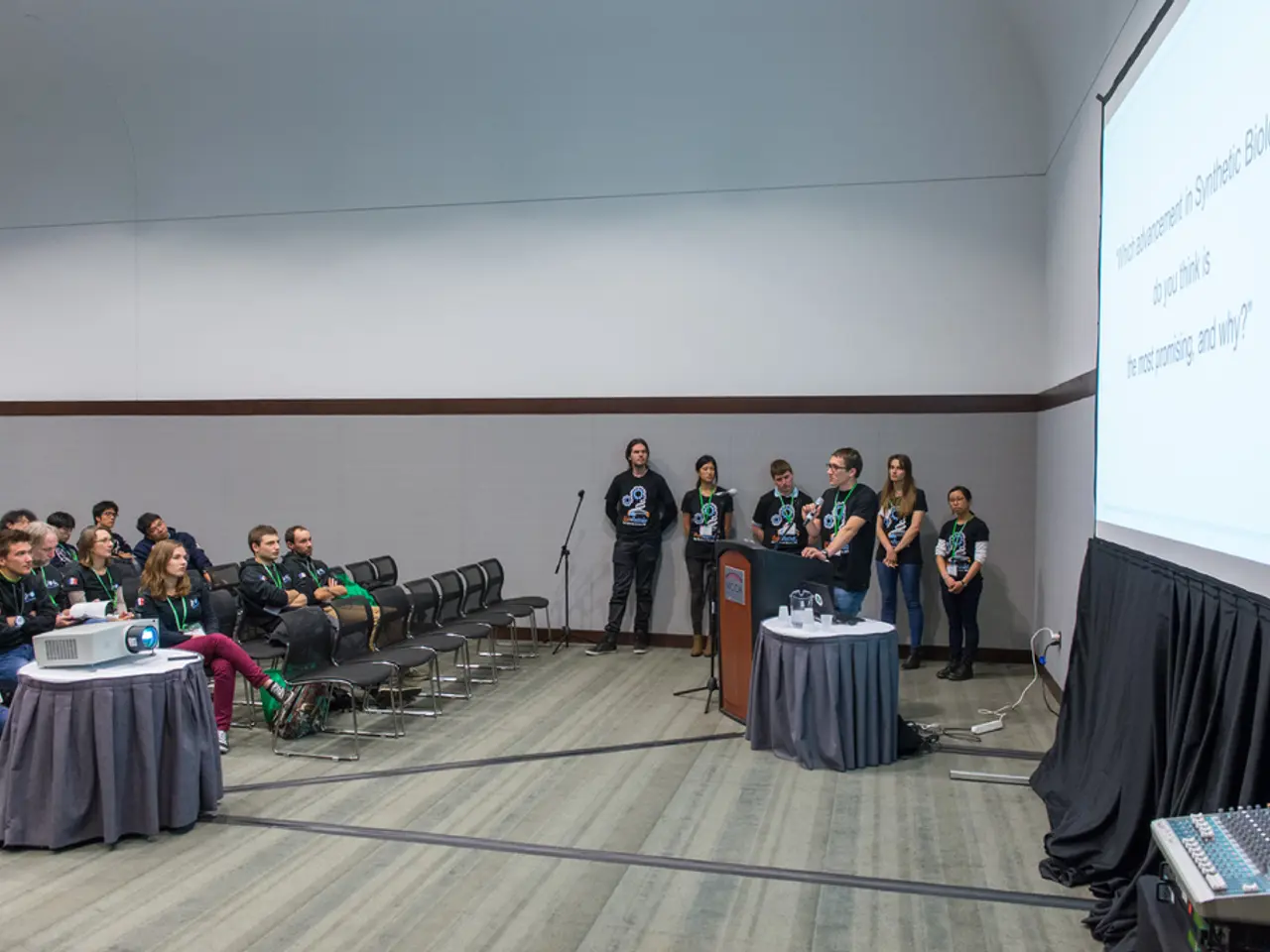The emergence of new regulations for platforms. What lies ahead in the UK's strategy for regulating digital platforms?
The Online Safety Act (OSA), a landmark legislation designed to make the UK the safest place online, is now in its critical enforcement phase as of late July 2025. The Act, published by the AHRC Creative Industries Policy & Evidence Centre (PEC), marks a significant step towards protecting children from harmful content online.
The OSA empowers Ofcom, the UK communications regulator, with enforcement powers to impose fines of up to £18 million or 10% of global turnover for non-compliance. One of the key requirements is the implementation of "highly effective" age verification controls on adult content platforms accessible in the UK, effective from July 25, 2025.
While the Act focuses on reducing online harms, particularly those affecting children, it has sparked debates over its potential unintended effects on digital competition, innovation, and open platforms. The stringent regulations, such as age assurances and content risk assessments, could significantly impact digital platforms' operations and market behaviours. This has led to a surge in UK VPN signups, indicating user circumvention efforts likely fuelled by these regulations.
However, there is pushback from non-profit platforms like Wikipedia, which argue that the broad application of the Act’s provisions risks undermining open knowledge resources and the open internet. The Wikimedia Foundation contends that rules crafted primarily for commercial risk sites could disproportionately affect public interest projects, raising concerns about regulatory overreach and potential harm to digital competition and innovation.
As the Act is implemented, its effectiveness and fairness in balancing these sometimes competing goals will be under scrutiny. The Act envisions increased transparency with registers of categorized online services and reporting requirements, aiming for accountability without stifling market diversity. However, the balance remains under scrutiny, as the law is implemented throughout 2025 and beyond.
The government is also planning to promote competition by bringing in new rules to limit market powers of online platforms. This tension between preventing online harms and promoting digital competition is a central theme in the proposed policy changes, as discussed by Professors Martin Kretschmer and Philip Schlesinger in a document titled "The birth of neo-regulation. Where next for the UK's approach to platform regulation?"
The OSA is part of a broader suite of policy briefs related to Education, Skills, Talent, Internationalisation, State of the Nations, and Geography of the Creative Industries. For more information, the document can be accessed at this link.
[Image credit: Hero image - Prateek Katyal on Unsplash; Thumbnail image - Katerina Holmes from Pexels]
[1] AHRC Creative Industries Policy & Evidence Centre (PEC). (2025). Online Safety Bill: Implementation and Enforcement. [2] Kretschmer, M., & Schlesinger, P. (2025). The birth of neo-regulation. Where next for the UK's approach to platform regulation? [3] Ofcom. (2025). Online Safety Act: A New Era for Online Safety in the UK. [4] Wikimedia Foundation. (2025). Response to the Online Safety Bill: Protecting Open Knowledge and the Open Internet. [5] PEC. (2025). Transitioning to Sustainable Production across the UK Theatre Sector.
- The OSA's critical enforcement phase, aimed at making the UK the safest online, has sparked debates about its potential impacts on innovation, particularly in digital industries.
- The UK's Online Safety Act empowers Ofcom to enforce age verification controls on adult content, a move that could influence creative industries' innovative approaches.
- Research analysts are conducting policy analysis to assess the OSA's impact on digital platforms, focusing on potential unintended effects on global competitions and open platforms.
- Internationalisation strategies in various industries will likely undergo scrutiny as the OSA's implications on international business practices become evident.
- Educational institutions and policymakers are discussing the integration of digital safety and responsible online conduct as part of curricula, to foster a culture of digital safety among future talents.
- The OSA's enforcement phase has led to an increase in UK VPN signups, indicating a trend of user efforts to bypass such regulations, which raises issues about data privacy and technology's role.
- As the OSA is enforced, it is crucial to conduct evidence-based research to evaluate its effectiveness and fairness in creating a balanced online environment that nurtures creativity and protects children.
- Political leaders and policymakers are debating the importance of balancing online safety with digital competition, which could shape future strategies in platform regulation.
- The OSA is interconnected with various policy briefs, including Education, Skills, Talent, and Internationalisation, highlighting the comprehensive nature of the UK's approach to the creative industries.
- Renowned scholars like Martin Kretschmer and Philip Schlesinger have published work discussing the emergence of neo-regulation and the UK's approach to platform regulation in the digital age.




